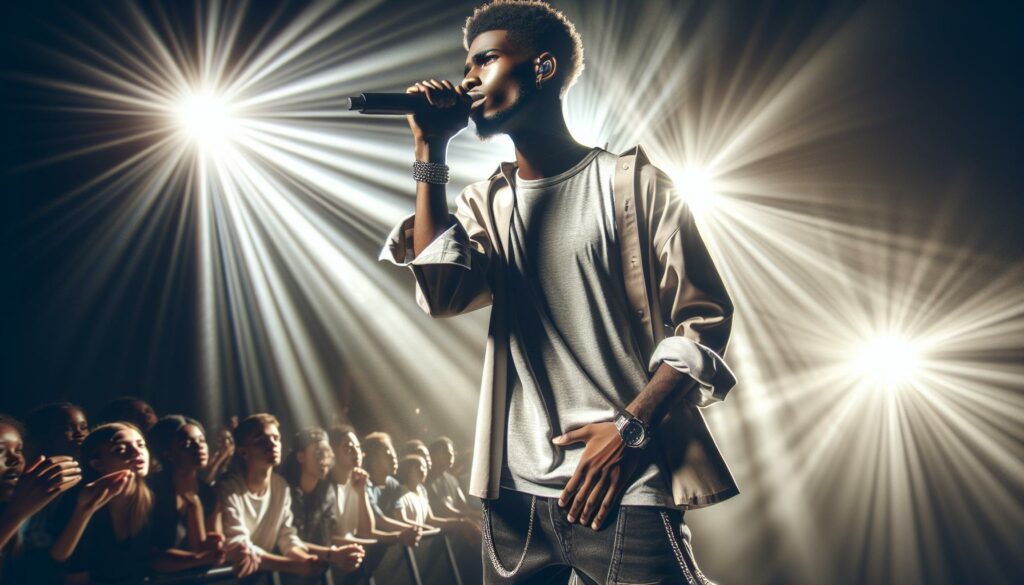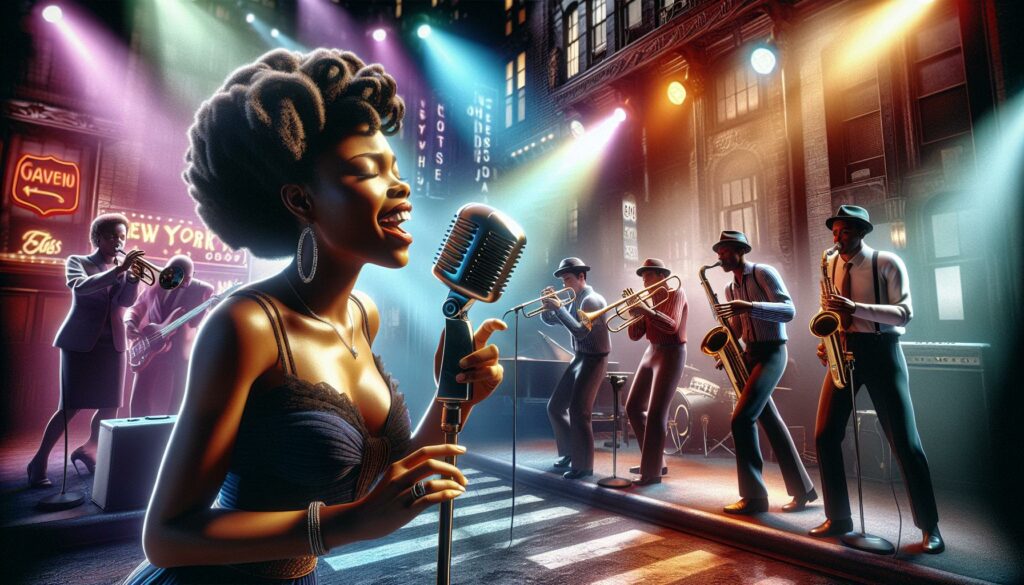Music has always been a powerful medium for storytelling, and when it comes to the lyrics crafted by Black artists, the depth and richness are undeniable. These lyrics often reflect a tapestry of experiences, struggles, and triumphs that resonate with listeners on a profound level. I find it fascinating how these words can capture the essence of cultural identity, social justice, and personal journeys.
As I dive into the world of Black music lyrics, I’ll explore how they’ve shaped genres, influenced movements, and connected communities. From the soulful expressions of love and pain to the sharp critiques of societal issues, these lyrics offer a unique lens through which we can understand the complexities of life. Join me as we uncover the artistry and significance behind these powerful words.
Key Takeaways
- Cultural Expression: Black music lyrics serve as a powerful medium for articulating unique experiences shaped by history, culture, and social issues, reflecting identity and community resilience.
- Genre Influence: Different genres like hip-hop, R&B, jazz, and gospel capture a range of themes, from love and heartbreak to social justice and struggle, demonstrating the richness of Black artistic expression.
- Historical Significance: The evolution of Black music reflects sociopolitical changes, with roots tracing back to spirituals and work songs, laying the groundwork for contemporary narratives.
- Social Justice Themes: Many lyrics address systemic oppression, racial inequality, and empowerment, with songs like Kendrick Lamar’s “”Alright”” and Public Enemy’s “”Fight the Power”” serving as anthems for activism.
- Inspirational Artists: Influential Black artists like Nina Simone, Tupac Shakur, and Beyoncé use their lyrics to challenge societal norms, celebrate cultural pride, and inspire change, leaving a lasting impact on music and society.
- Modern Trends: Contemporary Black artists blend genres and explore topics like identity and mental health, ensuring their lyrics remain relevant and reflective of today’s societal dynamics.
Black People Lyrics
Black artists often use lyrics to articulate unique experiences shaped by history, culture, and social issues. These lyrics serve as a powerful form of expression, reflecting identity, resilience, and community. They convey emotions such as love, pain, and hope while addressing topics like racial inequality, systemic oppression, and empowerment.
Many genres, including hip-hop, R&B, jazz, and gospel, feature lyrics that explore these themes. Hip-hop lyrics frequently tell stories of struggle and triumph, capturing the hustle and survival of marginalized communities. R&B lyrics often delve into complex emotional landscapes, depicting love and heartbreak with depth and nuance. Jazz and gospel, rooted in Black history, express spiritual and cultural narratives, weaving together themes of faith and perseverance.
Lyrics from Black artists resonate beyond music. They inspire movements and provoke thought, encouraging listeners to reflect on personal and societal issues. For example, songs like “”Fight the Power”” by Public Enemy and “”Alright”” by Kendrick Lamar highlight resilience in the face of adversity, serving as anthems for social justice movements.
Engagement with these lyrics fosters understanding and appreciation of Black culture and experiences. Analyzing the words and their context reveals the artistry and significance inherent in this expressive form. By listening and interpreting Black people lyrics, I gain insight into the struggles and celebrations woven into the fabric of Black life.
Historical Context
The historical context of Black music lyrics is rich and complex, rooted in profound cultural and socio-political influences. Understanding this context reveals how these lyrics function as powerful narratives of identity, struggle, and resilience.
Roots of Black Music
Black music’s roots trace back to African traditions, spirituals, and the experiences of enslaved people. Spirituals emerged as expressions of hope and faith, often conveying messages of resistance and freedom. The work songs sung during labor echoed the rhythm of life, blending communal storytelling with emotional depth. These early forms laid the foundation for contemporary genres, as they encapsulated the experiences of Black individuals in America.
Evolution Over Time
Over time, Black music lyrics evolved, reflecting sociopolitical changes and cultural shifts. The transition from jazz and blues to rhythm and blues (R&B) marked a significant progression, marrying emotional storytelling with a modern sound. Hip-hop emerged in the late 20th century as a powerful tool for expressing the struggles and triumphs of urban life. Each genre retained its roots while evolving to address contemporary issues, from civil rights to systemic inequality. Throughout the decades, lyrics served not just as entertainment but also as a catalyst for social change, continuing to inspire future generations in their advocacy for justice and equality.
Themes and Messages
The lyrics created by Black artists convey powerful themes that encapsulate identity, culture, social justice, and resistance. These messages serve as a lens through which listeners can gain deeper insights into the experiences and struggles faced by Black communities.
Identity and Culture
Identity and culture permeate Black music lyrics, articulating the unique experiences of African American life. Artists use lyrics to celebrate heritage, fostering a sense of pride among listeners. Songs often draw from historical narratives, connecting listeners to past struggles and triumphs. For instance, tracks like “”Black Man”” by Stevie Wonder highlight cultural pride and unity, reinforcing the importance of embracing one’s identity. Genres, including hip-hop and R&B, consistently explore themes of personal heritage, the significance of family, and the importance of community, creating a rich tapestry that reflects shared experiences.
Social Justice and Resistance
Social justice and resistance emerge as dominant themes in Black music lyrics, offering commentary on systemic oppression and racial inequality. Artists boldly address social issues through their work, calling for change and empowerment. In Kendrick Lamar’s “”Alright,”” he encapsulates hope and resilience amid adversity, becoming an anthem for movements advocating for justice. Similarly, Public Enemy’s “”Fight the Power”” critiques societal injustices and inspires collective action. Through their lyrics, Black artists mobilize listeners to confront systemic issues, embodying a spirit of defiance and resilience that resonates beyond music.
Influential Artists
Black artists have profoundly shaped music and its lyrical landscape. Their creative expressions serve as powerful reflections of culture, experience, and social justice.
Notable Lyricists
- Nina Simone: Her lyrics blend personal struggles with broader societal issues, addressing themes of civil rights and empowerment, exemplifying the emotional depth of resilience.
- Tupac Shakur: With vivid storytelling, Tupac’s lyrics tackle hardships faced in urban communities, addressing systemic injustices, violence, and hope for change.
- Beyoncé: Through anthems celebrating Black womanhood and cultural pride, Beyoncé’s lyrics inspire a generation to embrace their identity while pushing for social and political change.
- Kendrick Lamar: His intricate narratives delve into systemic oppression and personal experiences, serving as a voice for his community through impactful cultural critiques.
- Stevie Wonder: Blending spiritual and social themes, Wonder’s lyrics promote equality and understanding, reflecting the ongoing fight for civil rights.
Impact on Genres
Black lyricists influence a multitude of genres, each encapsulating unique narratives and experiences:
| Genre | Influential Artists | Key Themes |
|---|---|---|
| Hip-Hop | Nas, Jay-Z, Cardi B | Social justice, identity, resilience |
| R&B | Marvin Gaye, SZA | Love, heartbreak, empowerment |
| Jazz | Billie Holiday, John Coltrane | Struggle, hope, personal narratives |
| Gospel | Aretha Franklin, Kirk Franklin | Faith, community, resistance |
Each genre showcases the versatility and impact of Black lyricists, whose work transcends entertainment to engage with critical social issues.
Modern Interpretations
Contemporary lyrics from Black artists reflect diverse experiences and perspectives, adapting to current societal dynamics. They serve as a mirror to evolving cultural narratives while addressing pressing issues.
Current Trends in Lyrics
Current trends in lyrics showcase the seamless blend of genres and innovative storytelling methods. Artists like Lil Nas X and Janelle Monáe utilize vibrant imagery and bold lyrics to explore themes of identity, sexuality, and empowerment. Hip-hop increasingly incorporates elements from various genres, including pop and rock, resulting in unique sonic experiences. Incorporating social media references and modern vernacular, today’s lyrics resonate deeply with younger audiences, fostering connections and conversations around topics like mental health, social justice, and intersectionality. Themes of resilience and authenticity dominate across tracks, enabling artists to communicate their truths while fostering community empowerment.
Cross-Cultural Influences
Cross-cultural influences significantly shape the landscape of modern Black music lyrics. Collaborations between artists from different backgrounds highlight shared experiences and broaden audiences’ understanding. For example, recent works from artists like Burna Boy and H.E.R. fuse Afrobeat with R&B, exemplifying how genres intersect and create new sounds. Global musical elements, including reggaeton and K-pop, find their way into Black artists’ lyrics, enhancing cultural exchange while maintaining the core narratives of identity and resistance. By embracing diverse influences, modern Black artists not only honor their heritage but also advocate for inclusivity in music, demonstrating that the struggle for justice transcends borders and unites communities across the globe.
The lyrics of Black artists resonate deeply with me and reflect a rich tapestry of culture and experience. They not only entertain but also challenge us to confront societal issues and inspire change. Each song is a testament to resilience and identity, connecting listeners to powerful narratives that transcend time and space.
As I explore these lyrical landscapes, I’m continually moved by the stories that unfold. The artistry behind Black music lyrics serves as a vital reminder of the ongoing struggle for justice and the celebration of heritage. Engaging with these songs fosters a profound appreciation for the voices that shape our world, encouraging dialogue and unity in our shared quest for understanding and equality.



